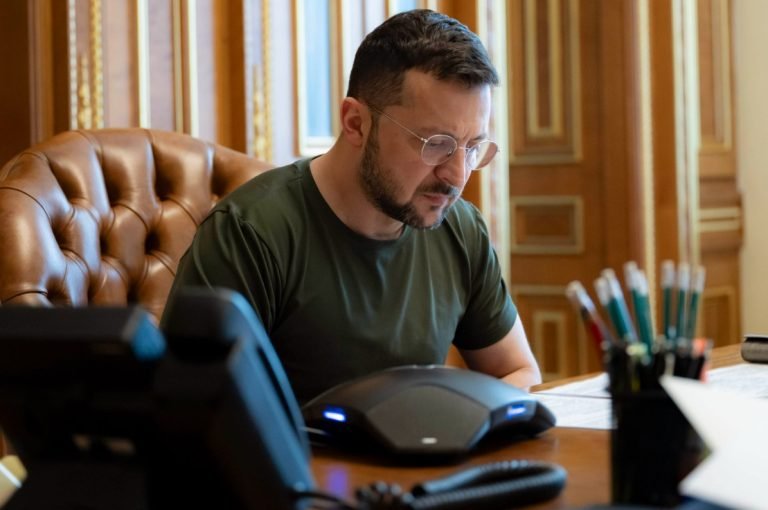Johnson Moves Forward with Ukraine Aid Bill Despite Hardliner Pushback

The Legislative Battle
Speaker Mike Johnson has firmly decided to progress with the presentation of several foreign aid bills on the House floor, including significant financial support for Ukraine. This decision comes in the wake of substantial pressure from hardline conservatives within his party. According to Johnson, “After significant Member feedback and discussion, the House Rules Committee will be posting soon today the text of three bills that will fund America’s national security interests and allies in Israel, the Indo-Pacific, and Ukraine.”
Financial Details and Strategic Implications
The proposed legislative package includes more than $9 billion in humanitarian aid, primarily directed towards Gaza and other global conflict zones—a critical point for Democratic support. The total aid earmarked amounts to approximately $95 billion, mirroring the Senate’s proposed figures. This includes $10 billion in economic assistance for Ukraine, structured as a repayable loan, a setup influenced by prior discussions with former President Donald Trump who advocated for foreign aid to be loan-based.
Political Dynamics and Challenges
The push to pass this comprehensive aid package has not been without its challenges. Conservative factions within Johnson’s party, including prominent figures like Rep. Marjorie Taylor Greene and Rep. Thomas Massie, have threatened his position as Speaker. In response to these pressures, Johnson expressed his commitment to his role and the legislative agenda, stating he does not “walk around thinking about the motion to vacate,” referring to the procedural tactic that could potentially remove him from office.
Broader Political Landscape
As the House gears up to vote on these bills, the Speaker’s ability to marshal sufficient support is crucial. While the Republican majority is slim, Johnson may need to rely on Democratic votes to pass the aid package. This cross-party cooperation could be pivotal, especially as the U.S. approaches a presidential election year, underscoring the strategic and humanitarian stakes involved in supporting allies like Ukraine and Israel amidst global conflicts.





